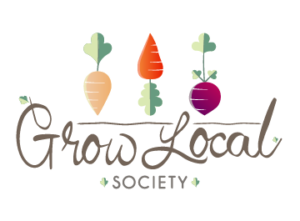The environmental and social benefits of farmer’s markets are often described as the main reasons to shop there. But what about the economic benefits to the broader community? Direct sales can offer vendors a better return for their efforts. The other important benefit is that local businesses tend to spend more locally. Sometimes described as the multiplier effect, how much money is recirculated into the local economy is determined in a number of ways.
The first consideration in shopping at a farmer’s market is that there is no middle man. Direct sales by farmers, bakers, prepared food vendors, and folks that sell their crafts is free from wholesale, distribution, and retail fees. There are still a multitude of other expenses that vendors incur, but more of that hard earned income goes to the vendor, and the people they employ.
Another consideration is how other businesses are impacted by the presence of a farmer’s market. The first instinct for neighbouring businesses is to resist the presence of farmer’s markets. However, studies in Canada and the United States indicate that local business increases when a farmer’s market is present. Depending on location and other variables, farmer’s market shoppers tend to spend approximately 60% in additional dollars at neighbouring businesses.
The third way is the multiplier effect, and how the dollars that you spend are recirculated into the local economy by those farmers and other vendors. There is the direct impact of the purchases they make in equipment, products, and wages they pay. And there is the impact of the purchasing power of their profits within their local communities.
Author Michael Shuman coined the term LOIS, local ownership and import substitution, in his book The Small-Mart Revolution. First tracking the devastating effect on small businesses of retail giants like Wal-Mart, Shuman traced the push-back of small independent businesses in communities across the United States. Shuman cited studies by Civic Economics and other sources, showing the economic multiplier effect of local business was two to four times greater than comparable non-local businesses.
The Transition Movement is another example of how communities around the globe are building their local economies, and increasing their resilience. The transition movement has a strong focus on local food and has gained traction as the effects of climate change and peak oil have become more apparent. Village Vancouver and Village Surrey are two examples of transition organizations in the region. Supporting your local farmer’s market is an excellent way of stimulating the local economy.
